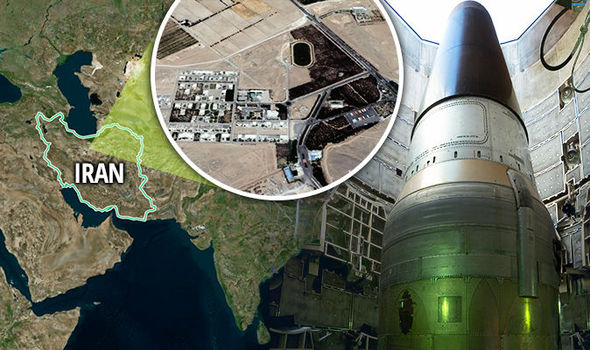
by Staff writer, SF
US President Trump announced on Tuesday that the United States would be withdrawing from the Joint Comprehensive Plan of Action, which is commonly known as the Iran nuclear deal. The P5+1, comprised of the US, Russia, China, France, the United Kingdom, and Germany, along with Iran are signatories of the nuclear pact.
Many questions remain, regarding the US decision — the actions that can be taken legally, and the corresponding implications and consequences.
There are three distinct processes to pay attention to, according to Dr. Majid Rafizadeh, Iranian-American political scientist and leading expert on Iran and US foreign policy, as well as president of the International American Council.
In his article for Arab News he writes that:
•The first one is linked to certification of the nuclear deal
•The second category is related to the subject of issuing a material breach report
•The third is associated with the president’s power to waive the re-imposition of US sanctions against Tehran
Dr. Rafizadeh explains, “Under the Iran Nuclear Agreement Review Act — a bill that was passed by the US Congress in May 2015 — the US president must issue or decline a certification for the Iran nuclear deal every 90 days in order to notify Congress of Tehran’s compliance with the JCPOA. Moreover, instead of certifying or decertifying the nuclear deal, the president has another option, which is to issue a material breach report.”
If the president does not certify the deal or if he submits a breach report, this triggers a 60-day window within which Congress will have time to introduce and pass legislation to re-impose US nuclear-related sanctions against Iran.
Congress can then choose whether to re-impose some or all of the sanctions that were lifted with the nuclear accord. The legislation would be processed on expedited terms. If Congress does not pass any legislation in the 60-day window, the nuclear deal will remain intact in spite of the fact the president has decertified it or submitted a material breach report to Congress. This is what happened in January, when Trump declined to certify the nuclear deal. Congress was reluctant to introduce and pass legislation during the 60-day window, and Iran continued to enjoy US sanctions relief.
Tuesday’s decision was significant as Trump is not waiving the US sanctions against Iran.
Dr. Rafizadeh described the sanction process, “Primary sanctions are designed to punish US persons or institutions that deal with the sanctioned party (the Iran regime or specific Iranian individuals and organizations). Secondary sanctions widen the scope of the punishment by targeting Iran’s industries, including oil and banking, as well as foreign entities that deal with the sanctioned entity. European countries continued to do business with Iran after the US decertified the nuclear deal in January because Trump signed a waiver to continue suspending US sanctions against Tehran. However, foreign companies now face a significant risk in continuing doing business with the Iranian regime.”
The next step will be Secretary of State Mike Pompeo working together with Treasury Secretary Steven Mnuchin to re-impose the sanctions on Iran.
Economic sanctions will not be reimposed immediately. There will be a 90-day and 180-day window before they are reactivated, which is likely designed to give foreign companies and corporations time to leave Iran’s market and halt their dealings with the country. If they continue to do business with Iran, they will face the consequences of the US sanctions.
Dr. Rafizadeh notes another differentiation is between the US sanctions and the UN Security Council sanctions. The primary and secondary sanctions were unilateral US actions, while the UN’s sanctions were reached by consensus among the five permanent members of the Security Council. He clarifies the terms: “the US decision to leave the nuclear deal and re-impose primary and secondary sanctions does not mean that the UN Security Council’s sanctions will automatically snap back. Other members of the nuclear deal can decide to keep the JCPOA, continue doing business with Iran, and face the negative consequences. Since the president has declined to waive the US sanctions, the Trump administration still has two options — Trump can continue declining to waive all the sanctions, or he can decide to re-impose some of the sanctions. For example, he could re-impose sanctions against Iran’s banking system, and later re-impose sanctions related to its oil and aviation sectors.”
The US decision to pull out of the nuclear deal, and re-impose of US primary and secondary sanctions against Iran, creates significant challenges for the Iranian regime. Large corporations and foreign must be extremely cautious of doing business with Iran, as they risk of losing business with the US.







